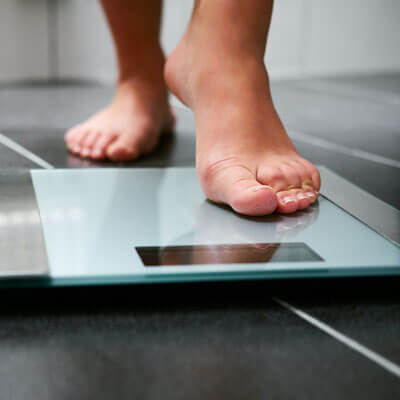
Myth: “Adrenal fatigue” causes our feelings of stress and burnout
Our adrenal glands produce hormones that allow us to respond to stress. It’s logical to think they can experience fatigue and stop working—most of us are under stress 24/7, with no end in sight. Cortisol is a stress hormone that helps the body keep running in a fight or flight situation. It’s what allows animals to run at high speed to escape a predator. It’s not meant to be a long-term response.
Unfortunately, most of us live in a state of perpetual stress in our fast-paced world. After years, decades, or a lifetime of living, like we’re a gazelle trying to escape a lion, our cortisol production gets dysregulated. Excess cortisol drives insulin resistance, causing us to store fat around the middle, which creates a vicious cycle: the more fat we have, the more insulin resistant we become, which leads to greater inflammation and the production of even more cortisol.
When our cortisol level is too high, it blocks the thyroid hormone at the receptor cell, telling our body that we’re starving and to store fat. If the levels are too low, we also store fat—but we don’t have the “deal with it” hormone to help us cope with our stress. So we feel wired and tired, with no patience and interest in sex.
Myth: Taking thyroid medication will help me lose weight
While the thyroid is a metabolic hormone, it doesn’t act on its own. There is a complicated interplay between thyroid and other hormones that must be addressed.
If your cortisol levels are out of whack, your body will think it’s starving. In response, the hypothalamus and pituitary will down-regulate thyroid production. Why would your body want a fast metabolism if it’s starving? If cortisol blocks thyroid production, you can take thyroid medication, and it won’t help, so stress hormones like cortisol need to be addressed.
Myth: I can control my insulin levels through diet alone
We are not simply bank accounts, where we can look at calories in and calories out to lose weight. You can have a caloric deficiency and not a lot of pounds, because it’s our hormones that tell our body how to use those calories.
Gluconeogenesis is a big word that means our liver will produce glucose even if we do not eat a single carb. This is important, because we need fuel to function our cells. However, the decline in estrogen levels in our 40s and 50s causes greater insulin resistance, prompting our livers to produce more glucose. So even while eating a low-carb, high-protein diet, we will be making and storing fat, particularly around the middle.
Discovering Your Primary Hormonal Imbalance
To reset your hormones to allow for better health and weight management, the first step is to identify your primary hormonal imbalance. For some, it’s the stress hormone cortisol. For others, it’s thyroid. And for others, it’s the change in sex hormones.
Learn More Today
Learn more in Betty Murray’s Menopause Metabolism Mastery. Contact us today to schedule.
